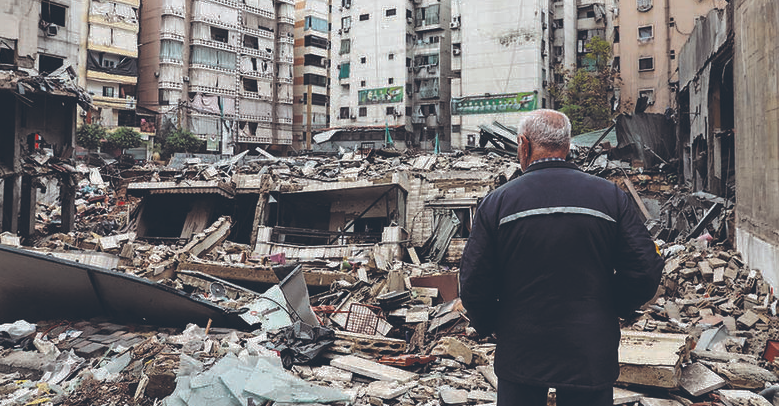Introduction: A Region in Turmoil
Death Toll ongoing conflict between Israel and Hezbollah has claimed the lives of 4,047 individuals, according to the Lebanese government. The toll marks a grim milestone in one of the most violent episodes in the region’s recent history. As the war continues to ravage communities, the humanitarian, political, and geopolitical ramifications are growing exponentially.
This article explores the causes, impacts, and potential outcomes of the war, drawing from historical context and expert analyses to provide a comprehensive understanding of the conflict.
Historical Context: Decades of Tensions
The current conflict is rooted in long-standing tensions between Israel and Hezbollah, a powerful Shiite militia based in Lebanon. Hezbollah, formed in the early 1980s in response to Israel’s invasion of Lebanon, has maintained its stance as a resistance force against Israel.
Key Historical Milestones:
- 1982: Israel’s invasion of Lebanon led to the creation of Hezbollah.
- 2006: A month-long war resulted in heavy casualties and devastation, with no clear victor.
- 2023: Renewed skirmishes escalated into a full-blown war, driven by regional instability and political divisions.
The Current Conflict: Timeline and Key Events
1. The Spark
The current escalation began with cross-border attacks and retaliatory strikes, following accusations of territorial violations and provocations by both sides.
2. Hezbollah’s Strategy
Hezbollah launched a series of rocket attacks targeting northern Israel, claiming to defend Palestinian rights and Lebanese sovereignty.
3. Israel’s Response
The Israeli Defense Forces (IDF) conducted airstrikes targeting Hezbollah strongholds, infrastructure, and supply routes in Lebanon.
4. Civilian Casualties
- Lebanese authorities report that a significant portion of the 4,047 casualties are civilians, including women and children.
- Displacement: Over 1.5 million people have been displaced within Lebanon and Israel, with many seeking refuge in neighboring countries.
Humanitarian Crisis: A Growing Concern
The war has precipitated a severe humanitarian crisis. 
a. Impact on Civilians
- In Lebanon: Destruction of homes, hospitals, and schools.
- In Israel: Fear and disruption due to constant rocket attacks.
b. Refugee Crisis
The displacement of millions has strained resources in Lebanon, Israel, and neighboring countries like Jordan and Syria.
c. Aid Challenges
Humanitarian organizations face significant obstacles, including restricted access to affected areas and insufficient funding for relief efforts.
Geopolitical Ramifications
1. Regional Dynamics
The conflict has drawn reactions from neighboring countries and global powers, exacerbating tensions in the Middle East.
- Iran: A key supporter of Hezbollah, Iran’s role has been heavily scrutinized.
- Saudi Arabia: Condemns the violence but remains cautious, emphasizing the need for de-escalation.
- Syria: Faces spillover effects, including refugee influx and cross-border skirmishes.
2. International Involvement
- United States: Strongly backs Israel, providing military aid and political support.
- United Nations: Calls for an immediate ceasefire, citing humanitarian concerns.
- European Union: Pushes for diplomatic solutions to prevent further escalation.
Economic Consequences
a. Lebanon
Already grappling with an economic crisis, Lebanon’s infrastructure and economy have been further crippled by the war.
- Inflation and Currency Collapse: The Lebanese pound has plummeted to record lows.
- Loss of Livelihoods: Destruction of businesses and agricultural areas.
b. Israel
While economically stronger, Israel has also faced significant disruptions, including:
- Costs of military operations.
- Damage to northern towns and industries.
Military Strategies and Analysis
Hezbollah’s Approach
Hezbollah’s tactics involve asymmetrical warfare, using guerrilla strategies and rocket attacks to challenge Israel’s military superiority.
Israel’s Military Strategy
The IDF has relied on precision airstrikes, intelligence operations, Death Toll and advanced missile defense systems like the Iron Dome to counter Hezbollah’s aggression.
Experts’ Opinions
Military analysts warn that prolonged conflict could lead to a regional war, Death Toll drawing in actors like Iran and Syria.
Diplomatic Efforts and Challenges
1. Calls for Ceasefire
Despite global calls for a ceasefire, Death Toll both sides remain entrenched in their positions.
2. Mediation Attempts
Countries like Qatar and Turkey have offered to mediate, Death Toll but significant mistrust and competing interests hinder progress.
3. Role of the United Nations
The UN has deployed peacekeeping forces along the Lebanon-Israel border, Death Toll but their effectiveness is limited amidst escalating violence.
Voices from the Ground: Personal Stories
Lebanese Families
- Families recount harrowing tales of losing loved ones and fleeing their homes amidst relentless bombardment.
Israeli Civilians
- Residents of northern Israel describe living under the constant threat of rockets, Death Toll disrupting daily life and livelihoods.
Global Reactions: Divided Opinions
The conflict has polarized opinions globally.
Support for Israel
- Western nations, particularly the US, Death Toll emphasize Israel’s right to self-defense.
Criticism of Israeli Actions
- Human rights organizations accuse Israel of disproportionate force, Death Toll leading to civilian casualties.
Support for Hezbollah
- Some Arab nations and groups view Hezbollah as a legitimate resistance force against Israeli aggression.
Potential Outcomes: What Lies Ahead?
1. Prolonged Conflict
Without meaningful diplomatic intervention, the war risks escalating further, Death Toll with devastating consequences for the region.
2. Regional Instability
Continued fighting could destabilize neighboring countries and trigger broader regional conflicts.
3. Peace Initiatives
A negotiated settlement, though challenging, remains the only viable solution to end the bloodshed.
Conclusion: A Call for Peace
The death toll of 4,047 in the Israel-Hezbollah war underscores the devastating human cost of prolonged conflict. As both sides continue to wage war, Death Toll the international community must intensify efforts to broker peace and address the underlying causes of the conflict.
Only through dialogue and compromise can the region hope to achieve stability and prevent further loss of life. The stakes are high, and the time for decisive action is now. ALSO READ:- “RBI Directs Banks to Activate Frozen and Inoperative Accounts: Ensuring Financial Inclusion and Customer Convenience” 2024